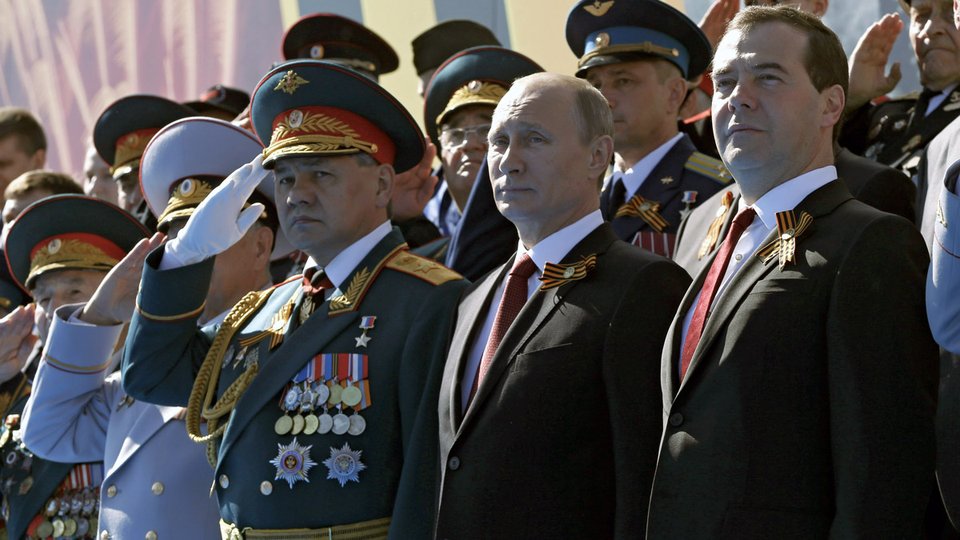The 'great cleansing' of Moscow security services
After the dismissal of the historic minister Sergei Šojgu, four generals have already been arrested in the last month, all accused of corruption. Not since Stalin's time have such actions been seen at the top of state and military bodies.
Moscow (AsiaNews) - The constant arrests and resignations in Moscow's Defence Ministry are causing a real internal earthquake in Russia's top military corps, following the defenestration of long-time minister Sergei Šojgu, who was relegated to the slums of the Kremlin's presidential administration.
The 'cleansing campaign' to rid corruption, which in reality is endemic in all bureaucratic levels of the institutions of power, appears to be more of an attempt to shift the blame for the lack of success in the war in Ukraine onto the generals of Šojgu's historical group, where two months of furious new offensives have allowed the Russians to conquer just a few kilometres of the now desolate land of the Donbass, just as the great Moscow ceremonies and parades were proclaiming imperishable victories.
In an investigation by The Moscow Times, the testimonies of two high-ranking Moscow government officials, along with other sources close to the Ministry of Defence, all under strict anonymity, were collected in this regard.
It emerges that 'a radical cleansing by the FSB of the Šojgu team is underway, a process that was largely predictable in the past year, after the grotesque uprising of Evgenij Prigožin'. With Vladimir Putin's new mandate, the security services have been given the 'green light' to take out the entire leadership of the ministry, now entrusted to the 'orthodox-Putinite' economist Andrej Belousov. More sensational arrests and resignations are expected before the 'internal revolution' is over.
Checks and searches in the Defence Ministry building on Moscow's Frunzensky embankment began even before the arrest of deputy minister Timur Ivanov, the right-hand man of ex-minister Šojgu, who initiated the 'Putin terror' among the generals. According to inside sources, the investigations started in late April, when Šojgu was still in charge, but it was already clear that he had lost all his influence. Now at the ministry 'there are more čekists [service members] than military personnel', says the Moscow Times contact.
Four generals have already been arrested in the past month, all of them accused of corruption, and other high-ranking officers have fallen into the Investigative Committee's net; it has not been since Stalin's time that such actions have been seen at the top of state and military bodies, and according to one of the interviewees, 'by the end of the year hundreds of people will be arrested'.
Compromising materials 'had been piling up for years, waiting for the right moment to make them pay off', but as long as Šojgu seemed untouchable, nothing had been leaked. The two force and power structures of the ministry and the FSSB had always been at odds, and now the čekists had resoundingly and definitively prevailed.
Until now, it seemed that the position of the security services was the most vulnerable, having failed all predictions about the easy and sudden triumph of the 'special military operation' in Ukraine, but the blame was then poured on the ineptitude of the 'second army in the world' under the leadership of Šojgu, which turned out to be a 'paper tiger', according to the comments collected by the Moscow newspaper.
Another one of Putin's main advisors, Security Council Secretary Nikolai Patrušev, who was also demoted after the inauguration of the new presidential term, was also swept aside by his own colleagues, even though he is organically linked to the FSB, waiting to see how the situation will evolve.
The impression of the anonymous confidants is that 'no one is really concerned about the war in Ukraine, but everyone is trying to save their money and power'. The most recent arrests, General Vadim Šamarin and the head of the cadre office Jurij Kuznetsov, were taking bribes of more than 30 million roubles (300 thousand euros), while Vice-Minister Ivanov had broken all records with a bribe of more than a billion. Russia failed to win the war not only because of the valiant resistance of the Ukrainians, but above all because of the relentless greed of its commanders.
12/02/2016 15:14







.png)










